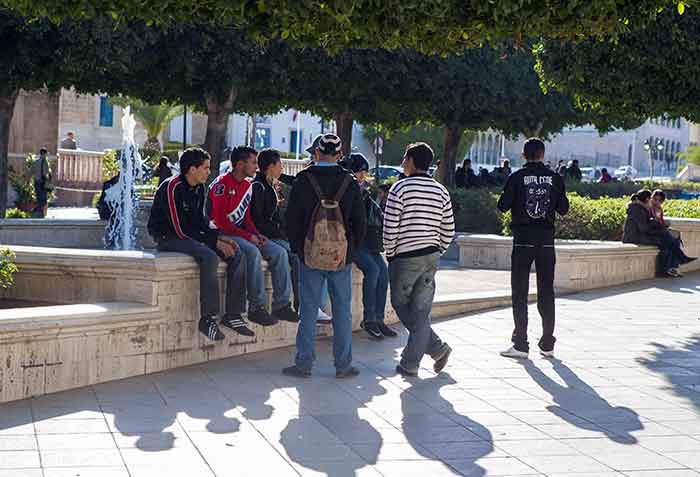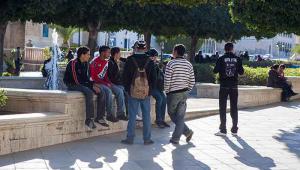web_tunisiastudents_shutterstock_290889734.jpg

A group of students in Tunisia. Around 40% of Tunisia's young people are unemployed.
The European Council announced yesterday it plans to provide up to €500m ($560) worth of loans to the country over the next two and a half years.
The IMF's executive board approved an extension of its programme with Tunisia for a further 48 months two weeks ago, injecting $2.9bn in loans into the country’s economy over that time, while the World Bank also announced a new five-year country strategy for Tunisia worth $5bn.
This brings the total in funds for Tunisia to around $8.5bn till 2021 to support the country’s economic reforms, inclusive growth and job creation.
Raging unemployment, among Tunisia’s youth in particular, 40% of whom cannot find work, has fuelled discontent among the population as the promises of the revolution still fail to materialise five years after the ousting of former president Zine al-Abidine Ben Ali in 2010.
Subsequent political turmoil as well as insecurity have further hampered the already weak growth in the economy. Several terror attacks last year slashed the country’s all-important tourism revenues in half.
The IMF said its funds would work to support the Tunisian government’s “comprehensive and new economic programme”, aimed at consolidating economic stability and promoting inclusive growth.
Its measures include a “prudent” fiscal policy to push down public debt, ease financing constraints and ensure stability, reform the civil service and overhaul the tax system to make it more progressive, efficient and equitable.
The European Council hopes its intervention will further bolster these reforms. However, this remains subject to approval by the European Parliament and a memorandum of understanding being agreed between the European Commission and Tunisia.
A statement said this would “lay down clearly defined economic policy and financial conditions” related to the loan, focusing on structural reforms and sound public finances.
It added: “A precondition for granting macro-financial assistance will be that Tunisia respects effective democratic mechanisms and the rule of law, and guarantees human rights.”
The World Bank’s board of executive directors approved its five-year country strategy for Tunisia in May. This will focus on economic growth and investment, job creation for young people and women, and regions that have been left behind.
It said the $5bn strategy would have three main goals: completing economic reforms following the 2011 revolution, including improvements to the business environment; reducing the disparities between coastal centres and underdeveloped regions in Tunisia; and supporting vulnerable sections of Tunisian society and increasing the trust between citizens and government by improving transparency.
“Our strategy aims to support Tunisia’s efforts to transform its successful political transition into strong social and economic outcomes for its citizens,” explained Marie Francoise Marie-Nelly, World Bank country director for the Maghreb.
“A critical element in this process is a new social contract, based on citizens’ confidence in the government’s ability to maintain a level economic playing field and access to quality services for all.”













